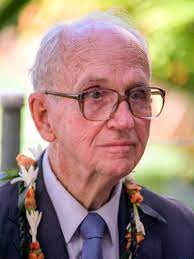Do you remember the children's book The Velveteen Rabbit?
I had forgotten all about it until I read this fascinating article.
My aunt Dianne sent the article to my mom, and my mom sent it to me.
As I read the article, it sparked memories of the following quotations:
- "If I find in myself desires which nothing in this world can satisfy, the only logical explanation is that I was made for another world." - C.S. Lewis, Mere Christianity
- "That unnameable something, desire for which pierces us like a rapier at the smell of bonfire, the sound of wild ducks flying overhead, the title of The Well at the World’s End, the opening lines of Kubla Khan, the morning cobwebs in late summer, or the noise of falling waves." - C.S. Lewis, Pilgrim's Regress"
- It has always seemed to me, ever since early childhood, amid all the commonplaces of life, I was very near to a kingdom of ideal beauty. Between it and me hung only a thin veil. I could never draw it quite aside, but sometimes a wind fluttered it and I caught a glimpse of the enchanting realms beyond-only a glimpse-but those glimpses have always made life worthwhile." - L.M. Montgomery, Anne of Green Gables
- «Voici mon secret. Il est très simple: on ne voit bien qu'avec le cœur. L'essentiel est invisible pour les yeux.» "And now here is my secret, a very simple secret: It is only with the heart that one can see rightly; what is essential is invisible to the eye." - Le Petit Prince, Antoine de St.-Exupéry
- "All that can be said is that everything in our life happens as though we entered upon it with a load of obligations contracted in a previous existence. There is no reason arising from the conditions of our life on this earth for us to consider ourselves obliged to do good, to be tactful, even to be polite. … All these obligations whose sanction is not of this present life, seem to belong to a different world, founded on kindness, scruples, sacrifices, a world entirely different from this one, a world whence we emerge to be born on this earth, before returning thither, perhaps to live under the empire of those unknown laws we have obeyed because we bore their teaching within us without knowing who had taught us.” (Marcel Proust, La Prisonniere, as quoted in Homo Viator by Gabriel Marcel.)"
- "We recognize what is lovely because we have seen it somewhere else, and as we walk through the world, we are constantly on the watch for it with a kind of nostalgia, so that when we see an object or a person that pleases us, it is like recognizing an old friend; it hits us in the solar plexus, and we need no measuring or lecturing to tell us that it is indeed quite perfect. It is something we have long been looking for, something we have seen in another world, memories of how things should be." - “Goods of First and Second Intent,” Collected Works of Hugh Nibley 9:528"
- "Because children have abounding vitality, because they are in spirit fierce and free, therefore they want things repeated and unchanged. They always say, 'Do it again'; and the grown-up person does it again until he is nearly dead. For grown-up people are not strong enough to exult in monotony. But perhaps God is strong enough to exult in monotony. It is possible that God says every morning, 'Do it again' to the sun; and every evening, 'Do it again' to the moon. It may not be automatic necessity that makes all daisies alike; it may be that God makes every daisy separately, but has never got tired of making them. It may be that He has the eternal appetite of infancy; for we have sinned and grown old, and our Father is younger than we." - G.K. Chesteron, Orthodoxy"








